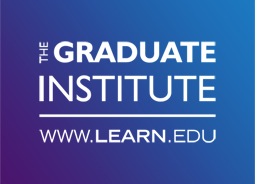
The Graduate Institute,
Two Day Workshop
The Phenomenology of Silence: Educing Learning and Creativity in the Classroom
July 13-16
Bethany, Connecticut
Masters in Learning and Thinking Cohorts
Closed Group
Feedback: "On behalf of the three MALT cohorts you spent the last two days with I would like to thank you again for providing an exceptional opportunity to offer an inspiring, meaningful and relevant workshop. I love the way you create a comfortable and safe learning space for my colleagues to reflect and share their thoughts and feelings." Dr James Trifone, The Graduate Institute Bethany CT
The Phenomenology of Silence: Educing Learning and Creativity in the Classroom
Nothing has changed the nature of man as much as the loss of silence. Max Piccard
In this two-day session, veteran high school math teacher, Lawrence Carroll, will share mindfulness techniques as a foundation for dialogue and thus, for learning. Despite the variety of pedagogical styles to which teachers are introduced, the classroom is dependent upon the oral tradition. Verbal communication is the primary medium for transmitting knowledge.
In our sessions together, participants will explore the relationships between silence, dialogue, learning and creativity. In so doing they will awaken in themselves the source of their own pedagogical potentials.
The goals in our sessions are to:
1. Determine how stress affects learning and creativity
2. Experience and learn silence and mindfulness techniques
3. Explore the relationship between silence, dialogue and communication
4. Investigate the role of silence and mindfulness in implementing the Connecticut Code of Responsibility for Teachers
5. Brainstorm the ways in which silence can be applied in the classroom
Teachers will come away with:
1. A renewed and enhanced sense of their roles as teachers
2. Practical methods to manage classroom stress
3. An understanding of the role of meditation and mindfulness in learning
4. Deeper listening and dialogical skills
5. A set of practical guidelines for implementing these techniques in the classroom
6. Resources and support to help establish these practices in their school districts
STATUS: CLOSED
Two Day Workshop
The Phenomenology of Silence: Educing Learning and Creativity in the Classroom
July 13-16
Bethany, Connecticut
Masters in Learning and Thinking Cohorts
Closed Group
Feedback: "On behalf of the three MALT cohorts you spent the last two days with I would like to thank you again for providing an exceptional opportunity to offer an inspiring, meaningful and relevant workshop. I love the way you create a comfortable and safe learning space for my colleagues to reflect and share their thoughts and feelings." Dr James Trifone, The Graduate Institute Bethany CT
The Phenomenology of Silence: Educing Learning and Creativity in the Classroom
Nothing has changed the nature of man as much as the loss of silence. Max Piccard
In this two-day session, veteran high school math teacher, Lawrence Carroll, will share mindfulness techniques as a foundation for dialogue and thus, for learning. Despite the variety of pedagogical styles to which teachers are introduced, the classroom is dependent upon the oral tradition. Verbal communication is the primary medium for transmitting knowledge.
In our sessions together, participants will explore the relationships between silence, dialogue, learning and creativity. In so doing they will awaken in themselves the source of their own pedagogical potentials.
The goals in our sessions are to:
1. Determine how stress affects learning and creativity
2. Experience and learn silence and mindfulness techniques
3. Explore the relationship between silence, dialogue and communication
4. Investigate the role of silence and mindfulness in implementing the Connecticut Code of Responsibility for Teachers
5. Brainstorm the ways in which silence can be applied in the classroom
Teachers will come away with:
1. A renewed and enhanced sense of their roles as teachers
2. Practical methods to manage classroom stress
3. An understanding of the role of meditation and mindfulness in learning
4. Deeper listening and dialogical skills
5. A set of practical guidelines for implementing these techniques in the classroom
6. Resources and support to help establish these practices in their school districts
STATUS: CLOSED